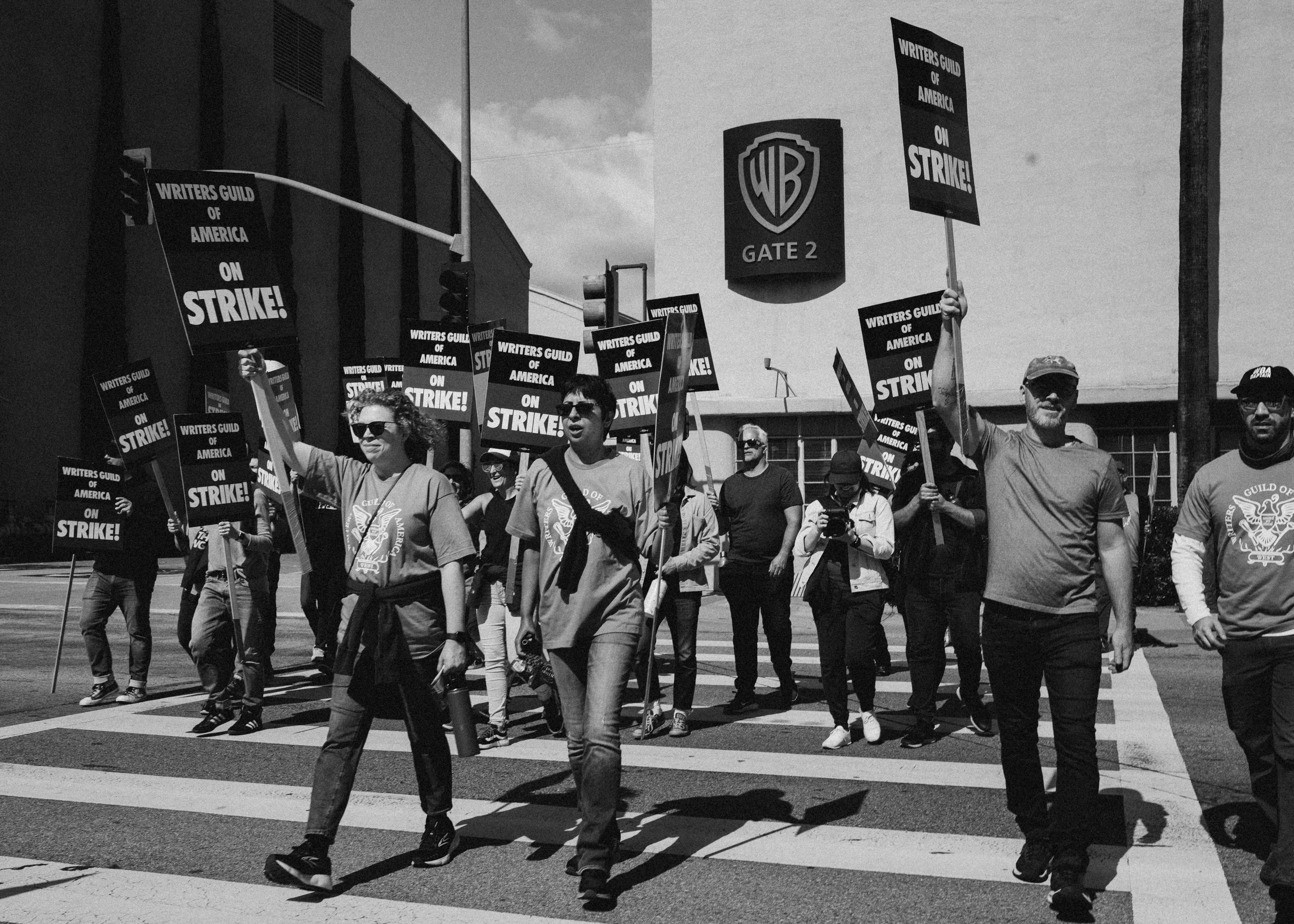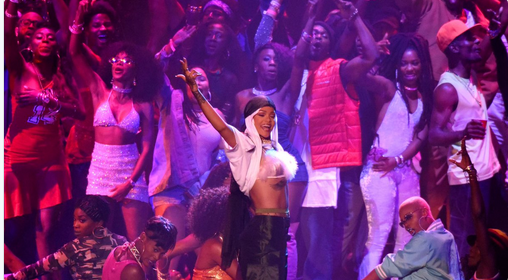Writers’ Strike: A Retrospective from a WGA Writer and Citrus College Students

Unprecedented times have finally come to an end. The Writers’ Guild of America, a unionized guild that provides writers with benefits for economic and future stability, has recently gone on strike due to conflicts with the Alliance of Motion Picture and Television Producers. This is the first strike that has occurred since 2007 after the Guild fought for more DVD residuals and the role of their union in reality and animation programming as stated by Nationalworld.com. Forbes.com shared the following demands that the union members of the WGA have expressed for the betterment of their careers as of 2023. The list includes increased compensation, better residuals, staffing requirements, protections from artificial intelligence job interference and more. Though the strike came to a close as of September 27th, 2023, there are still concerns for the future of the industry and what repercussions come from having a 146 day long strike for creatives and writers around the country.
Aditi Kapil is a television and theater writer that has dedicated her work to the WGA since 2017, she has worked on numerous television shows including American Gods and Away and has currently been writing and is a co-executive producer for Invasion which can be streamed on Apple TV, as well as written several plays in her career. She has been recognized time to time for her works in writing by receiving awards for internationally produced plays such as Orange, Imogen Says Nothing, and The Displaced Hindu Gods trilogy. She began to picket with her fellow union members on May 2nd, 2023 in order to support the union’s efforts on a new negotiation contract.
When speaking to Kapil, she elaborated on how her career started and has been since working in the film industry, “Around 2017 is when I transitioned from theatre to film and television, mostly TV, I came out to do a show that didn’t happen called Z, The Beginning of Everything which was a Zelda Fitzgerald drama series […] And we spent six weeks in the room and started writing maybe an outline when the show got canceled and I think it was at a time where Amazon was canceling a lot of their shows […] It was just not the direction they wanted to go in.” Although the show did not work out at the time, she was able to continue her craft by writing for American Gods, a Neil Gaiman novel turned into a fantasy drama series. “After the show was canceled I was like ‘That was a weird six weeks, um, I’ll go back to Minneapolis’ […] and then the next show I did was more of a real gig, which was season two of American Gods and that was a year long gig so that’s the job I ended up moving the entire family to Los Angeles […] before that I was just coming out and sleeping on couches.”
Being in the industry for six years allows individuals to observe change whether that is policies or the environments that surround a writer and the privileges that are or aren’t given despite union efforts, Kapil mentioned that “I feel like anecdotally speaking, that I came in to the business after the really major changes because I have talked to people who have been here longer and they talk about a version of hollywood that I didn’t see, as well as really really generous residuals, I have certainly never seen generous residuals because I came in and went straight to streaming. Other than that the writer’s rooms have definitely been smaller.” Kapil also added that “ I do believe that it is harder for people who are starting out to get those lower level gigs […] the shows want upper-level, I just want people who can do the job.”
The WGA works on a three year basis in which after every three years, the contracts that support the WGA union members have to be re-negotiated to fit the expectations of the workers demands, this being the main reason why the Writers’ strike started. Kapil mentioned “ I have definitely been in rooms where there is no staff writer, so there is that piece and then there is the production piece of it […] I don’t think there was any conversation about the writers’ involvement in the production end.”
Continuing on with the treatment of writers, from an anonymous executive, states that “The end game is to allow things to drag on until union members start losing their apartments and losing their houses.” This sheds light on how these big corporations like Disney and Netflix feel when it comes to the creatives of the country. Kapil added, “I think this business model has been taking advantage of writers, it’s cynicalism that goes across the board […] it’s across America, in corporations where we make the bottom line serve our investors and bring back and show profits every quarter […] it’s all about grabs which has led to a certain amount of, kind of opportunistic taking advantage.”
Citrus College has created various programs to allow students to express their creativity in any which way. Providing one specific class, an introduction to screenwriting and playwriting class which is advised by Cory Hinkle. The class has allowed for creative expression especially in writing. Some of the students involved hope to become the future of the industry in the means of screenwriting. In a class discussion, many of the students revealed their feelings regarding the strike and the future of their careers. Ryan Farias is one of the many students to share his personal feelings stating, “I wrote a paper for a topic of my choice over the summer, and my whole thesis was that without the human aspect of writers, quality drops […] and the studios are very blatant about not wanting to pay writers and that being the main reason for putting artificial intelligence to make it easier but in reality makes it worse for everybody, consumers and artists alike.” Student Jacob Smith also furthered the conversation on A.I. by sharing, “It’s a really weird issue that A.I. is being used in the entertainment industry rather than other fields where it might be more useful like in the health system and medical fields to help people better their lives rather than being like ‘oh, this could write a 300 page book in a second and generate a script maybe.’” What went on to be a 50 minute class discussion, allowed the classmates to bond over issues that they felt were crucial in the development of their careers.
Speaking to the students separately sprung very different opinions towards the strike. In a separate conversation. Students Jacob Smith and Anthony Campa, who worked on a short film over this last summer, shared their opinions on what it’s like to be a part of a production process by Smith claiming, “In terms of time wise, the planning took about a month for production […] it took a couple weeks for production to wrap but everything went smoothly.”
Smith and Campa both considered if they were interested in pursuing screenwriting as a career and both were optimistic on their screenwriting experiences and were eager to share what inspires their creativity the most, Smith added, “I write mainly horror scripts and a lot of horror short stories […] a bit like indie horror which I don’t want to blanket the genre name but those things like that I find really intriguing […] Or the author H.P. Lovecraft, those are the types of creatures I grew up watching.” Transitioning the conversation from the overall topic from the love of screenwriting to what they felt about the strike itself, allowed for perspective from people who have worked in not only production but the screenwriting process. Campa felt that the pay aspect was the most unfair by adding, “In terms of the whole writers’ strike, I think a lot of people hit the same points that I pretty much agreed with […] the biggest issue for me is these writers not getting enough residuals […] the writers may have a certain amount of residuals that eventually become dollar or penny amounts so I think, if anything, I really believe a writer should be able to make a solid, steady, percentage wise, on each residual.”
The writer’s strike not only allowed for individuals to explore what career and values they were meant to have for themselves, it also allowed for solidarity and team bonding. The unions worked together to fight for the issues that were pivotal to the development of industry but also the futures for everyone involved. The 2023 Writers’ strike is a historic memory for an entire industry dedicated to a craft that will remain treasurable for years to come.



